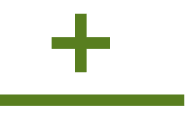Pipe rack modules must be designed with a thorough understanding of the mechanical and environmental challenges they will encounter, considering load requirements, material compatibility, and more.
Pipe rack modules are pre-loaded pipe racks and provide the necessary infrastructure to support pipes, power cables, and other equipment. These steel structures are widely used in industrial projects such as oil and gas refineries, electrical and petrochemical plants, and nuclear power plants. These modular systems are critical to ensuring the safety of an industrial plant's daily operations.
Pipe racks must be designed with a thorough understanding of the mechanical and environmental challenges they will encounter, considering load requirements, material compatibility, and environmental factors.
This article will explore the importance of pipe racks in industrial setups, specifically their fabrication, transportation, and installation.
Fabrication of Pipe Rack Modules
Pipe racks are structural units that support pipes or cable trays used to transport liquids, gases, or cables between different operational units or equipment throughout a plant. These elongated racks carry pipes in a longitudinal direction. They have portal frame-like geometry, multiple levels, and a grid of bents. Longitudinal struts and bracings connect these bents to ensure stability and support.
Modular pipe rack fabrication begins with selecting the appropriate, durable, cost-effective materials. The overarching goal of this phase is to produce high-quality modules that can be easily transported and installed on-site while minimizing change requests and project timeline delays.
In pipe rack module assembly, sections of pipe rack are pre-loaded with the required pipe supports, piping, electrical tray and other design requirements at a fabrication shop, where it is then transported to the permanent location.
The modular fabrication process has been shown to help reduce the time and cost associated with stick-built construction in some projects. However, it is not without challenges. It requires extensive front-end planning and coordination to manage the complexity of manufacturing and installing prefabricated components. It also requires detailed engineering and design.
Transportation of Pipe Rack Modules
Transportation of large prefabricated pipe modules requires careful planning. These modules can be transported by road or water. Their size and weight frequently require the use of specialized equipment, and the implications of on-site delivery and assembly must be considered. Strategic route planning is also required to deliver the modules safely while adhering to all applicable rules and regulations. Collaboration among stakeholders can reduce risks and delays.
Installation of Pipe Rack Modules
Pipe rack modules are often quick to install. Large rack sections can be preassembled and lifted into place, allowing for shorter on-site construction times. However, the process may still face challenges such as unpredictable site conditions, inclement weather, and poor communication and coordination, all of which can negatively impact this process. Expert project management and collaboration among construction teams, engineers, and site managers are required to achieve the best results.
Partner with H+M for Custom Fabricated Equipment, Modules, and Skids
Pipe rack modules have become an integral part of the infrastructure in many different industrial settings, and they’re vital structures for transferring essential materials. Modular design principles, modular fabrication, and strategic transportation and installation are crucial in enhancing these modules' functionality, safety, and cost-effectiveness.
The safety features of modular pipe racks, as well as their ease of construction and installation, make them an appealing alternative to other solutions. Pipe rack modules frequently provide advantages over other alternatives, especially when engineered and fabricated by a modular solutions expert with a proven track record of success.
H+M’s modular group specializes in designing and fabricating truckable modules providing exceptional capital project execution from concept to start-up for clients across the United States. From our engineering and fabrication headquarters in Houston, Texas, we can transport your project to wherever you are. For over three decades, we have provided end-to-end solutions for a wide range of project sizes within the energy, chemical, and terminals and logistics industries.
We are dedicated to providing trust, experience, and efficiency through all stages of engineering, procurement, and construction through our proven strategic EPC approach. Our comprehensive services, including front-end planning, detail engineering and design, procurement, fabrication, and construction allow us to take your modular process plant project from conception to completion, tailoring engineering and design solutions to meet your unique needs.

The H+M Industrial Team
For over three decades, we have provided best-in-class capital project management services to Energy and Chemical industries through our proven EPC approach. We are dedicated to providing trust, experience, and efficiency through all stages of engineering, procurement, and construction--on budget and on time.

Partnering with H+M Modular
H+M Modular, a division of H+M Industrial EPC, specializes in custom fabricated equipment, modules, and skids for energy and chemical industries. The approach emphasizes the potential for decreased risk through more controlled fabrication, leading to enhanced quality and safety, reduced labor costs and construction times, improved labor availability, and solutions to geographic challenges. We are dedicated to providing trust, experience, and efficiency through all stages of traditional and modular construction projects using our proven EPFC approach, If you're considering modular fabrication, we invite you to connect with us to learn about how modular solutions can improve project outcomes.





